Your dog’s fear of flies might be due to quick and erratic movements, which can be startling to dogs. Some dogs may be sensitive to the buzzing sound that flies make, while others might associate flies with a past traumatic experience, such as being swarmed or bitten by insects. Understanding the reasons why dogs see flies as a threat is the first step toward helping them.
Estimated reading time: 8 minutes
From gradual desensitization to professional guidance, our comprehensive guide provides strategies and insights to help your dog overcome their fear of flies.
Understanding What Makes Some Dogs Scared of Flies
Many dog owners are often puzzled when their pets seem scared of flies. The fear of flies in dogs isn’t uncommon, but understanding why a dog is scared of flies can be a bit complex.
First, the quick and erratic movements of flies, coupled with the buzzing sound, can be distressing for some dogs. Dogs have sensitive hearing, so the sound of flies buzzing around may be quite alarming for them. Small dogs and rescue dogs, in particular, may be more terrified of flies, although the reasons why a dog may be afraid of flies can vary widely.
Past traumatic experiences, such as fly bites or a bad experience with flies, can lead a dog to develop a fear of flies. If a dog has been bitten by flies in the past, they may associate the presence of flies with danger and pain.
House flies, black flies, horse flies, and other types of flies can evoke different reactions in dogs. Some dogs are afraid of many types of insects, including flies. Some dogs can be scared of things like fly swatters too, as they may have had negative experiences with them.
Finally, some dogs may be afraid of flies because they may have had inadequate socialization as puppies. This lack of exposure to various stimuli can make it easier for flies to cause distress. Proper socialization helps dogs become more comfortable around flies and other bugs.
How to Tell if Your Dog is Afraid of Flies
If your dog is displaying unusual behavior around flies, you might be wondering how to tell if your dog is truly scared of flies. Recognizing these signs can be essential to understanding your pet’s distress and finding a way to help your dog.
- Snapping at Flies: Some dogs might snap at flies. This behavior may look like they are trying to catch and eat flies, but it can be a sign your dog is irritated or afraid.
- Avoidance of Flies: Dogs can be afraid of many things, including flies. If your dog is suddenly avoiding areas with a number of flies or is constantly on the lookout for flies, this could be a sign they fear flies.
- Fearful Reactions to Fly Swatters: If your dog is afraid of fly swatters, they may have associated them with a bad experience with flies. Watch how they react to fly swatters or similar objects.
- Rescue Dog Concerns: Rescue dogs may have had negative experiences with flies, which could lead to more intense reactions. Understanding the rescue dog’s history can help you see why they may be afraid of flies or other insects.
- Unusual Behavior Around Flies: Pay attention to how your dog reacts around flies. If you notice behavior like trembling, running away, or hiding when flies are around, these are indicators that your dog may be scared of flies.
- Changes in Body Language: Many dogs may change their body language around flies. Ears pulled back, tail tucked, or a low body posture can be signs of discomfort or fear.
By understanding these signs, you can better comprehend why your dog is scared of flies and take the necessary steps to help them. It’s important to be patient and observe your dog’s behavior, especially if your dog has been bitten or has had a bad experience with flies in the past.
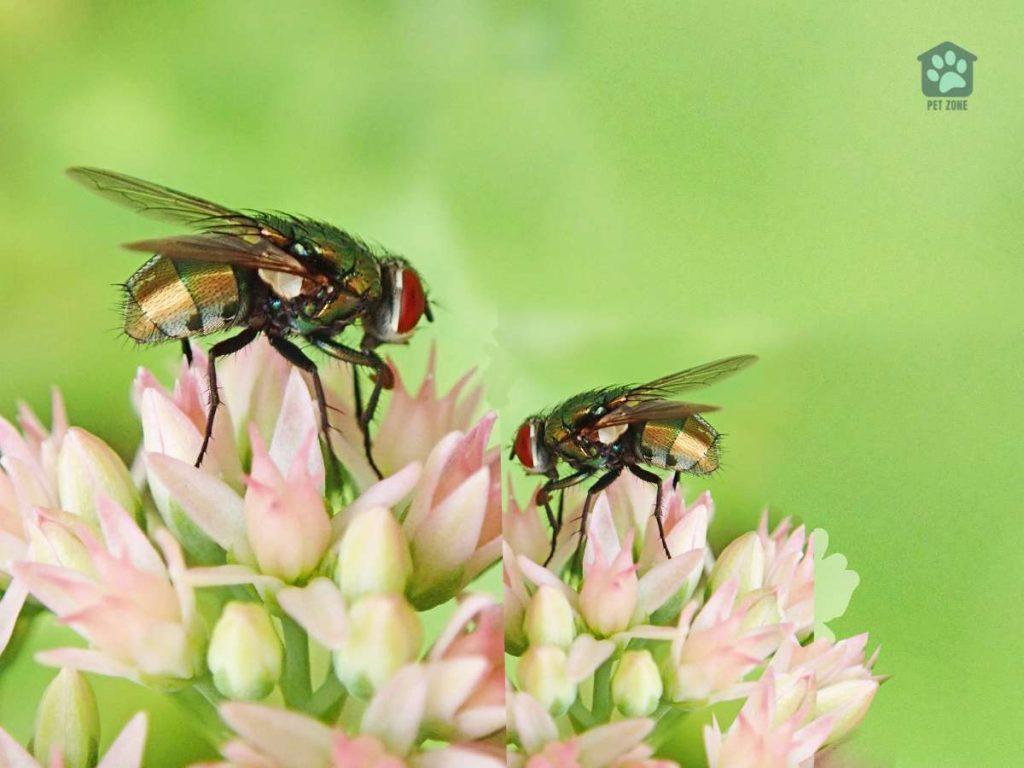
Helping Your Dog Overcome His Fear of Flies
Helping a dog overcome their fear of flies is a compassionate approach to their well-being. Here are some strategies that may help your dog:
Desensitize Your Dog to Flies
Exposing your dog to flies gradually can help them become more comfortable. You can start by showing your dog images or videos of flies, then progress to real flies in a controlled environment.
Give your dog treats or praise when they stay calm around flies. This helps them associate the presence of flies with positive experiences. It may take time as your dog becomes accustomed to flies, so don’t rush the process.
Training and Building Confidence
Training your dog to sit, stay, or focus on you can help them stay calm around flies. Reward your dog for obeying these commands even when flies are around.
If needed, a professional trainer can guide you on how to desensitize your dog to flies or other insects.
Creating a designated area free from flies can give your dog a retreat if they feel overwhelmed.
Develop Positive Associations
Help your dog associate the presence of flies with good things by offering treats or playtime. If you react negatively when flies are around, your dog may pick up on your emotions and become more fearful.
Keep the Flies Away
There are products designed to keep flies away from your dog. Always check with your vet to ensure they are safe to use.
Keep flies away by maintaining a clean space and using methods to get rid of flies in your home.
By employing these strategies, you can help your dog overcome their fear of flies. Understanding the reasons why a dog may be afraid and working patiently with them can make a difference. Sprays on your dog or other preventive measures can also provide a solution.
Strategies to Keep Flies Away from Your Dog
Flies can be more than just a nuisance; for some dogs, they can be a source of real fear. Here’s how you can manage and keep flies away from your dog, making their environment more comfortable:
Keep Flies Away from Food and Water Bowls
Keeping your dog’s feeding area clean can prevent flies from being attracted. If flies are attracted to your dog’s food, covering it when not in use can keep flies away.
Use Fly Repellents Safe for Dogs
Before using any spray on your dog to keep flies off, always consult your veterinarian to ensure it’s safe. Some natural repellents may keep flies away without harming your pet.
Maintain a Clean Yard and Home
Flies are attracted to waste, so regular cleaning can keep the flies away. Properly disposing of pet waste and securing trash cans can reduce the number of flies around your home.
Create Barriers to Flies
Installing screens on windows and using nets around outdoor areas can help keep flies away from your dog. Fly traps can catch flies and keep them away from areas your dog frequents.
Consider Your Dog’s Health
Sometimes, flies may be attracted to a specific scent or issue with your dog’s health. A vet checkup can ensure that there are no underlying health concerns attracting flies.
These methods can help you keep flies away and make your dog’s environment more comfortable. Whether it’s through natural repellents, cleanliness, or avoiding fly-prone areas, these strategies can support your dog’s well-being. Managing flies around your dog can also ease any fear or discomfort they may have towards flies or other insects.
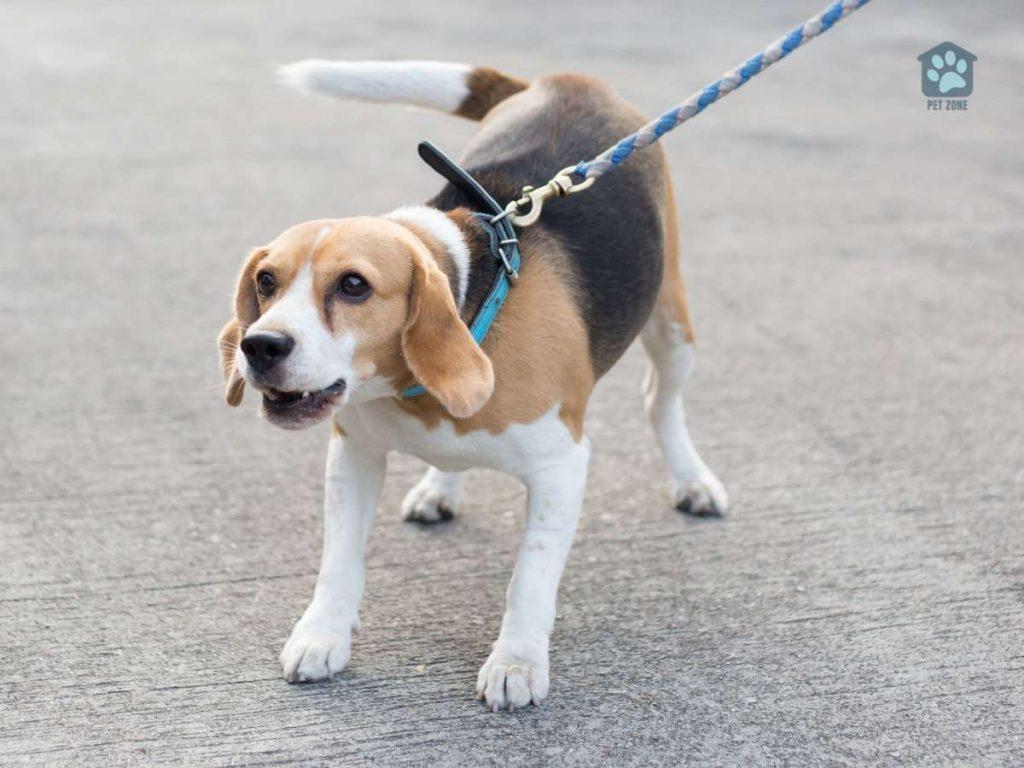
Seeking a Professional to Help a Dog Afraid of Flies
Sometimes, a dog’s fear of flies may be more than you can handle alone. If you notice that your dog’s fear is affecting their daily life or if the usual strategies aren’t working, it might be time to seek professional help.
Signs That Professional Help is Needed
If your dog’s fear of flies continues for an extended period and interferes with normal activities, this might be a sign that professional help is needed. A dog terrified of flies may display extreme reactions like panic attacks or aggressive behavior. These are clear signs that professional assistance might be beneficial.
If you’ve tried to help your dog overcome their fear of flies using various strategies and see no improvement, consulting a professional may be the best next step.
Finding the Right Professional
Your vet knows your dog and can recommend a behaviorist or trainer experienced in helping fearful dogs. Finding a certified dog behaviorist ensures they have the required training to understand and address your dog’s fear of flies or other insects.
Talking to other dog owners who have used a professional can give you insight into their effectiveness.
What to Expect During Professional Assistance
A professional will assess your dog’s fear, including how they react to flies, their history with flies, and any other related fears. Based on their assessment, the professional will develop an individualized plan to help your dog overcome their fear of flies.
Many professionals offer ongoing support, guiding you through the process and adjusting the plan as needed to help your dog.
Seeking professional help doesn’t mean failure on your part. Every dog is unique, and some may need expert assistance to overcome their fear of flies. Whether it’s because your dog is afraid of many things or has had a particularly bad experience with flies, a professional can make the process smoother.
Conclusion – Understanding and Patience
Remember, your dog’s fear of flies isn’t something they can control, and it’s not a reflection of failure on your part as a pet owner. Whether it’s a buzzing fly, a sudden encounter with a fly swatter, or a more complex issue related to past experiences, each dog’s reaction to flies will be unique.
From gradual exposure to professional help, from understanding the types of flies to creating a positive environment, the journey to helping your dog overcome their fear of flies is filled with learning and empathy.
By following the insights and strategies outlined in this article, you can not only help your dog overcome their fear of flies but also deepen your connection with your furry friend. After all, our dogs depend on us, and there’s no greater reward than seeing them happy, confident, and free from fear.
Feel free to share your thoughts and experiences in the comments section below, and don’t hesitate to share this article with fellow dog owners who might find it helpful in understanding and addressing their dog’s fear of flies.
As an Amazon Associate I earn from qualifying purchases.
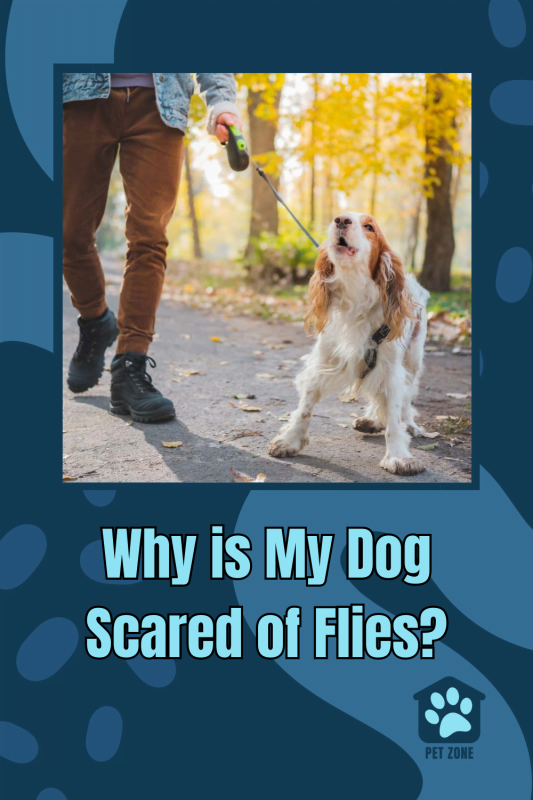


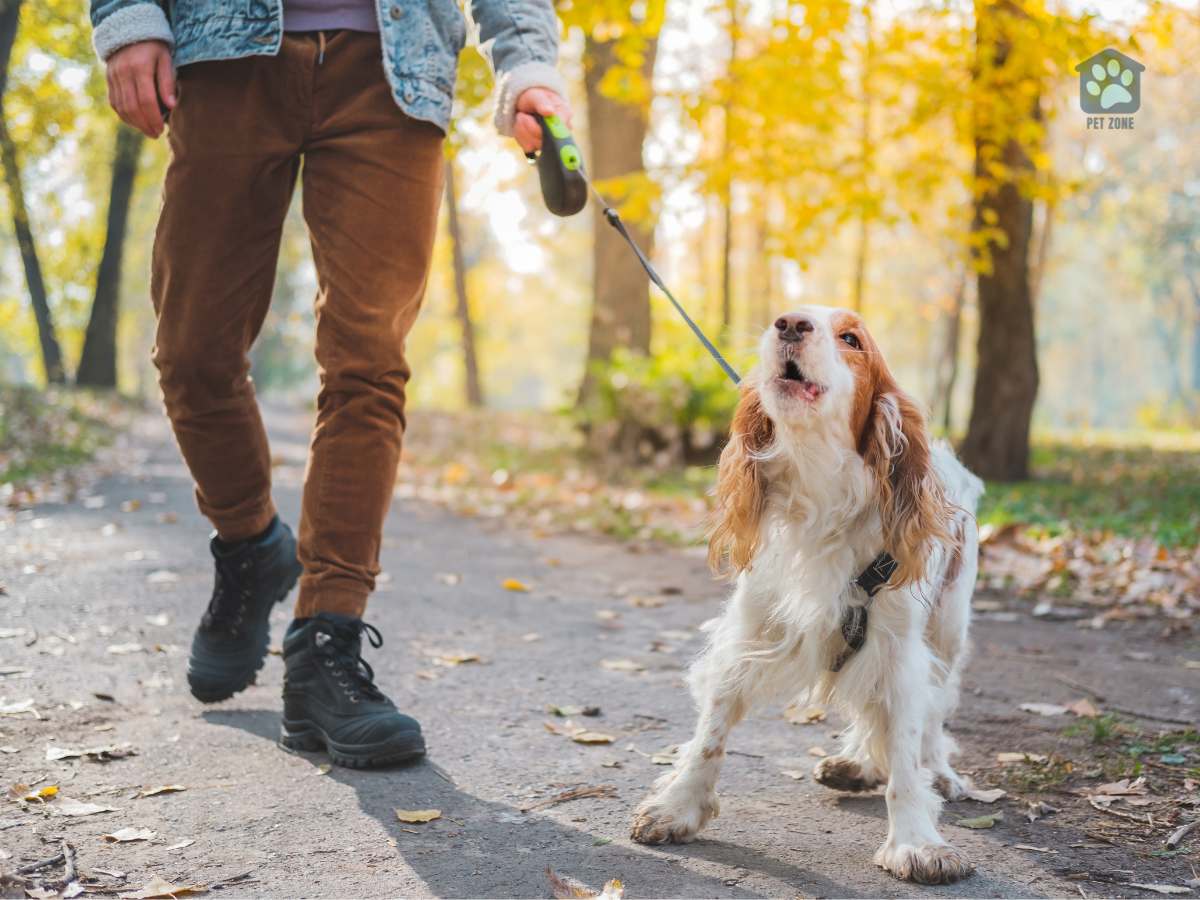
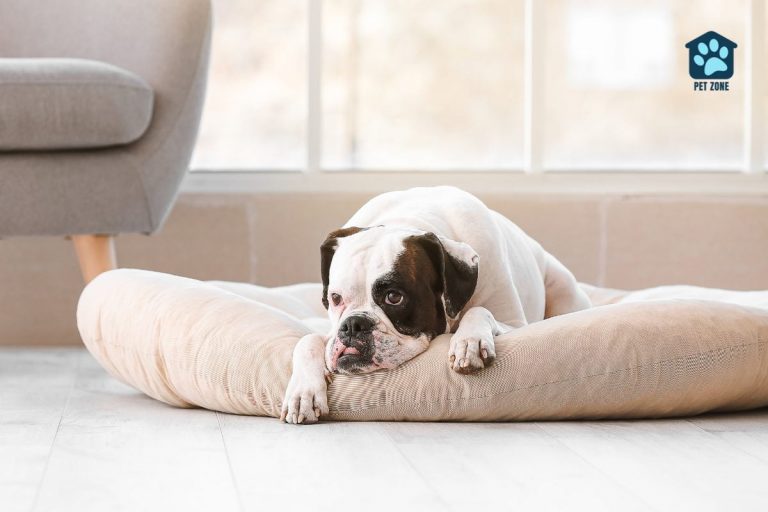
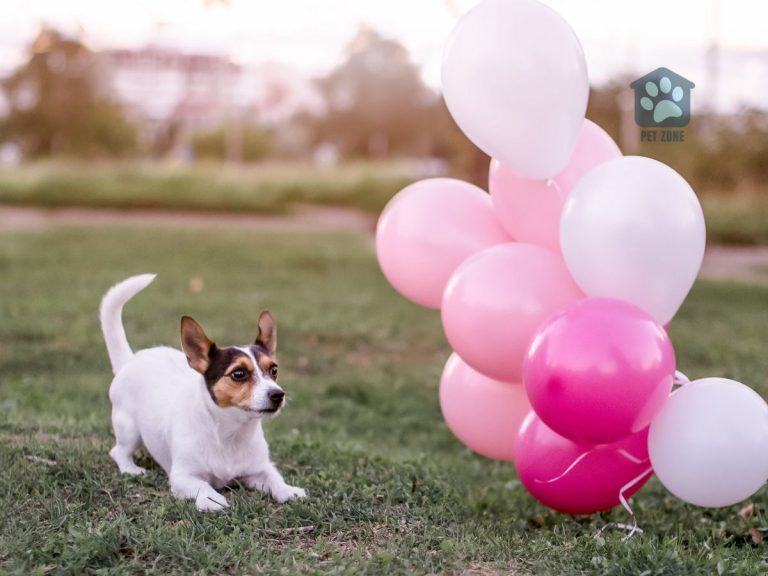

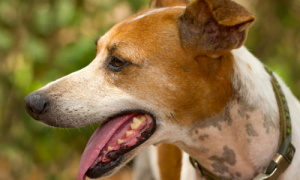
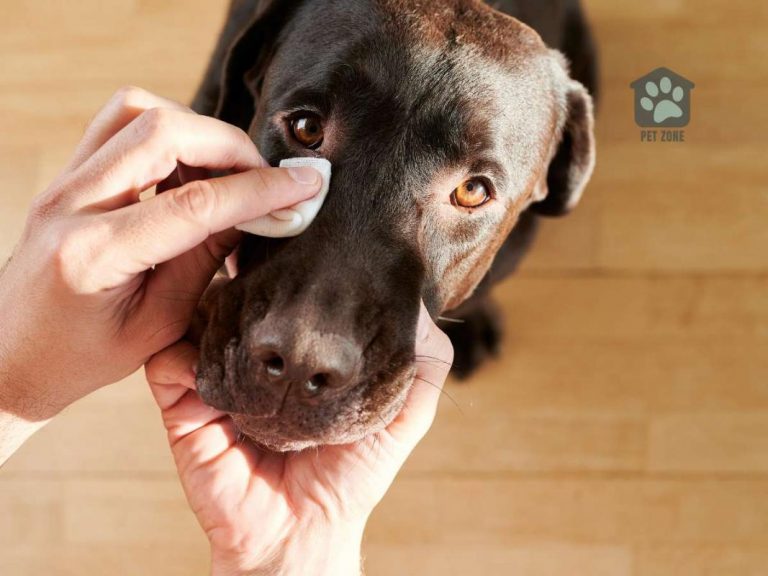

My doggy hates flies ever since he got bitten by one when he was 8 months old. If one comes near him, he will shake his head. If one is in our house, he sometimes even hides away in fear. That’s how we know we got a fly in the house somewhere.
One of my dogs hates flies going near him so this would make sense as to why! He’s completely okay with small flies but the ones you can really hear buzzing he really doesn’t like!
Thankfully my pup doesn’t fear flies. In fact, she’s sure every time one is around they are her personal toy to chase!
I didn’t know that dogs experience this issue. I’m learning something new every day! Thanks for sharing this useful post. Spreading the knowledge about pets to help their owners is an amazing job!